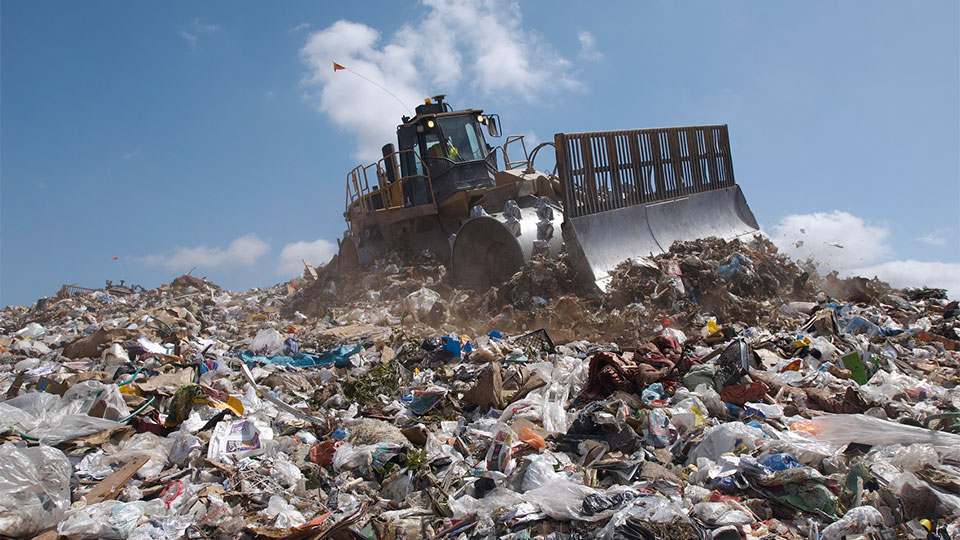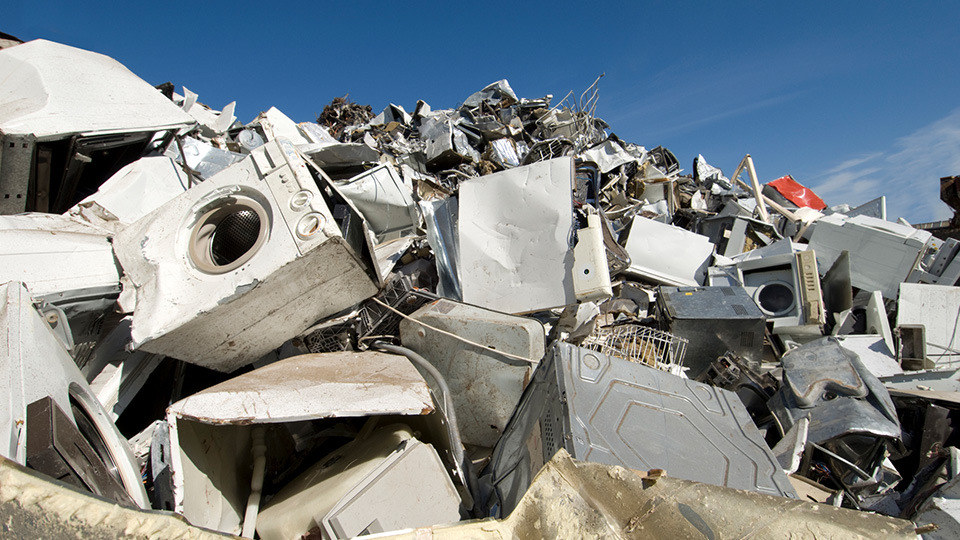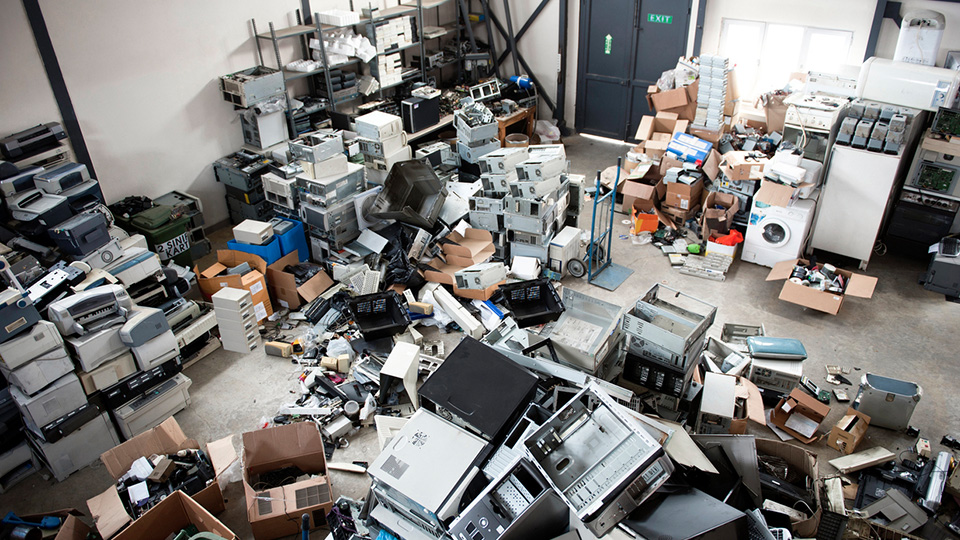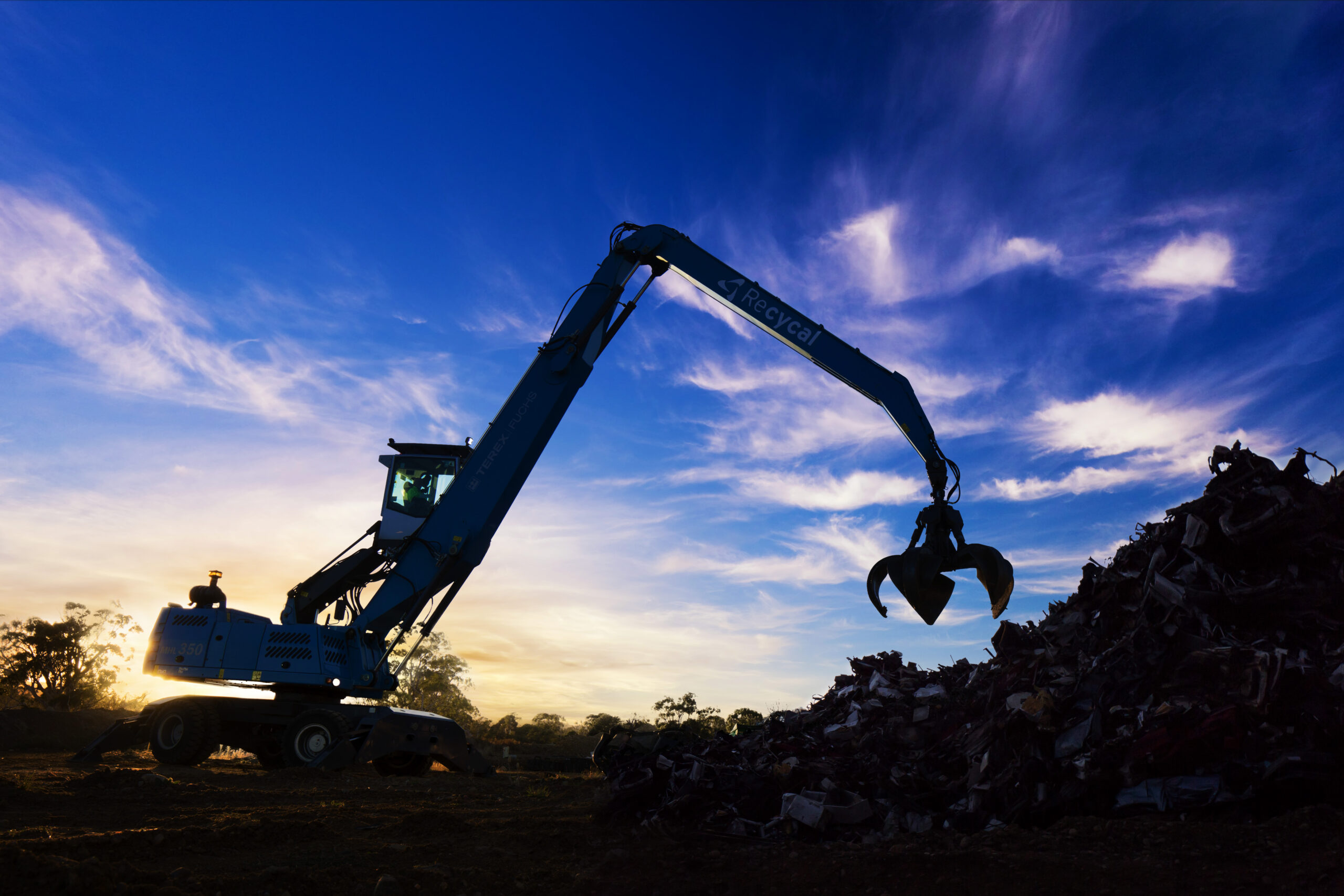Australia has an e-waste problem.
According to researchers at the University of New South Wales, we are generating e-waste three times faster than all other forms of waste.
Electronic or electrical waste is any device that can connect to a power supply. In other words, if it has batteries or plugs into a power point, it’s destined to eventually become e-waste.
The leader of the study, Professor Graciela Metternicht of the university’s School of Biological, Earth and Environmental Sciences, said a key problem is that legislation hasn’t kept pace with waste generation.
Targets that might have been effective 10 years ago are inadequate now. Schemes are also limited in their scope. For example, the National Television and Computer Recycling Scheme was introduced in 2011, but in 2015 less than 1% of discarded televisions and 10% of computers and laptops were recycled.
The result is that hazardous materials such as lead, arsenic and mercury, along with valuable metals including gold and less glamorous copper, end up in landfill. From there, they can leak into the wider environment, or simply represent the loss of useful materials.
Compare that to Switzerland where 75% of recoverable material is recycled, leading to an e-waste recycling rate, per person, that’s 16 times higher than in Australia.
Key problems
According to Professor Metternicht problems include:
- Recycling laws not covering all e-waste
- Poor public engagement that leaves people not knowing what can and can’t be recycled
- Outdated recovery targets, and
- Weak auditing and compliance.
Another problem is that local governments that manage most e-waste and have the most influential relationship with the public receive no direct funding for the collection and recovery of e-waste.
Solutions
Driving significant inroads into Australia’s e-waste problem will require additional legislation, such as expanding the National Waste Policy to include a much wider range of products.
The policy will then need more auditing to ensure compliance. Local governments will also need to be given more power (and funding) for the management of e-waste.
Why wait?
While government action is necessary, this overlooks the fact that we are all, either individually or as an organisation, responsible for the e-waste that we generate. And while we need more collection schemes for a wider range of e-waste than is currently available, there is plenty we can do now to keep this hazardous (and valuable) waste out of landfill.
Ecocycle accepts a wide variety of e-waste for recycling, including all lighting waste, computers and televisions and even humble batteries. In most cases, we offer simple collection solutions that can be easily integrated into your office or workplace.
Find out how easy it is to solve your e-waste problem. Call us on 1300 32 62 92 or fill in the form below and we’ll be happy to create a solution that suits you.
"*" indicates required fields





